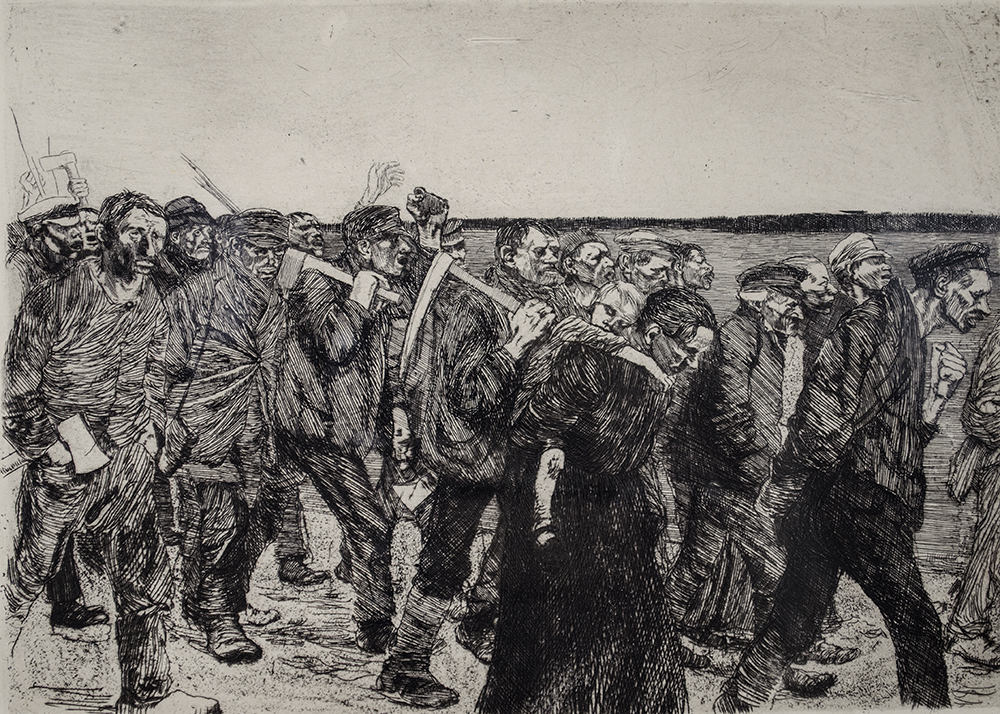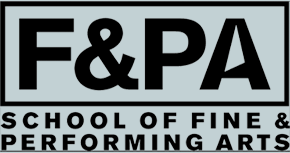
The Weavers March
An avid Socialist throughout her life, Käthe Köllwitz focused on themes of social criticism, workers’ rights, poverty, war, and death as they affected the lower classes. She was especially interested in the difficulties faced by poor women and their children in the midst of the great social upheavals in Europe during her lifetime. While conveying great compassion for her subjects, there is no sentimentality in her art; she refused to make lower class existence seem agreeable to art patrons.
“The Weavers March,” the fourth in a narrative cycle of three lithographs and three etchings entitled “A Weaver’s Revolt,” takes its subject from a contemporaneous German play based on an actual uprising of laborers in Silesia (now Poland). The weavers are marching to attack the homes and warehouses of their employers. A few marchers wave their fists in angry defiance, but most have grim expressions, showing a resignation to act rather than revolutionary fervor. The central figure of the woman in the forefront carries a sleeping child as she doggedly walks along; she represents the dual role of working class women as caretakers and wage earners for their families.
When Köllwitz began this cycle, she was just learning the etching process. The print demonstrates an almost immediate grasp of the technique. The density of lines creates a sharp contrast between dark and light, providing drama to the scene and giving the figures concreteness and realism. The hatch marks and gritty ground convey roughness and evoke the raw emotions of the moment. Presented at eye level, as they move through the countryside, the figures at either side of the band are cropped as they enter and exit the picture frame, providing a sense of action. The composition is reminiscent of photographs, again evoking the feeling of immediacy and realism. The barren horizon gives a sense of the bleakness of the grim existence of the weavers, without distracting our focus from the action.

